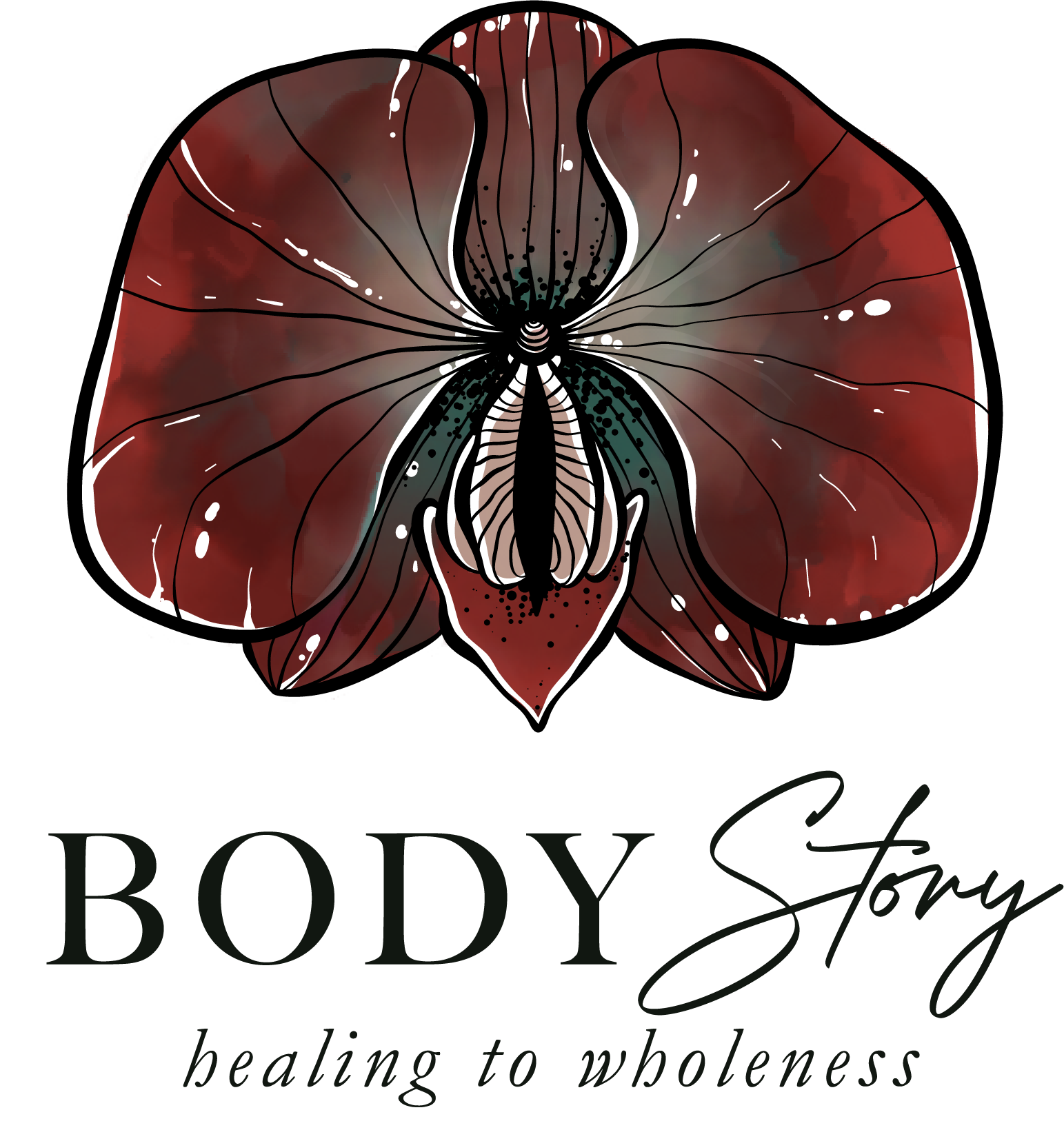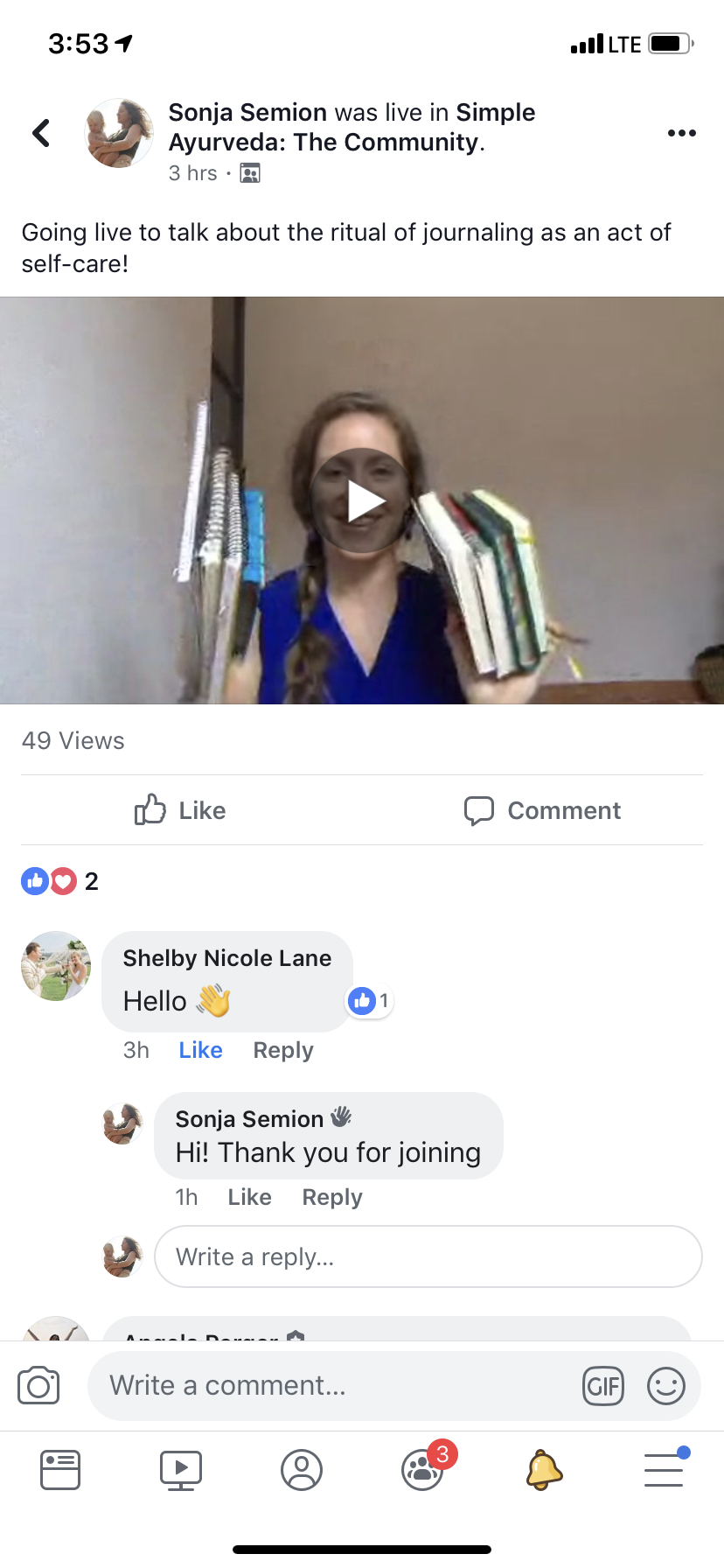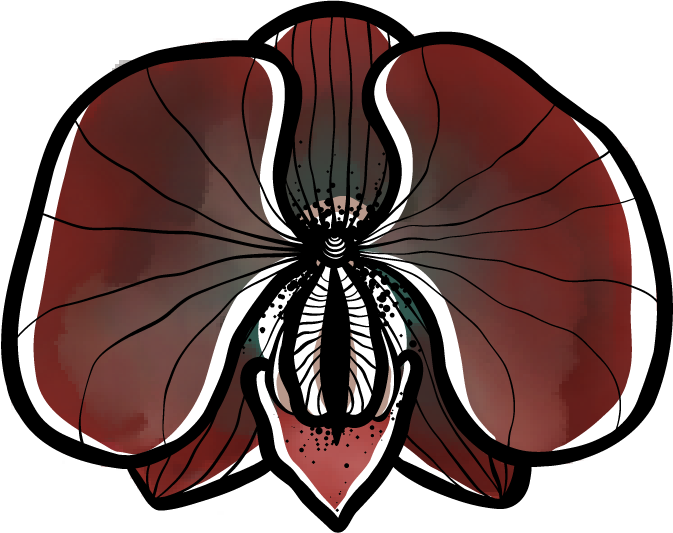I just finished a Facebook Live video on the power of ritual journaling for the Simple Ayurveda Facebook group, led by the beautiful Angela Perger. I was so inspired by what I got to talk about there that I wanted to share it again here. (Join the group and you can see the full video.)
Angela’s topic for the month has been the power of ritual. I adore ritual. It marks every part of my day. Ritual is what makes my dinacharya, or daily routine, holy. When my routines are ritualized, I approach them with devotion. I make them a celebration of my aliveness.
The Power of Daily Routine
Ayurvedically speaking, ritual heals. Rituals define dinacharya — there are times for self-care, times for work, times for eating, times for relaxation. This is balm on a busy life. Knowing what is coming next eases anxiety and reduces decision fatigue. But ritualized days also works to calm the doshas:
Ritual calms vata dosha by grounding the wind energy in what to expect from the day.
Ritual calms pitta dosha by keeping things nice and organized.
Ritual calms kapha dosha by nurturing stability and structure in life, making room for sweetness and joy.
When we ritualize our days, each day becomes an experience of healing. And when we see healing as a daily event, we live according to dharma, which allows us to express our creative desires.
Hopelessly Devoted to My Daily Routine
Every morning I ground myself in ritual. Before 8:00 a.m., I do the same exact order of things every single day. I wake up, bathe and brush my teeth, do neti, warm my tea, and sit down to practice pranayama and meditate. And just after meditation, but before I practice yoga asana and eat breakfast, I write in my journal.
I’ve kept a journal for most of my life. I started tucking a diary beneath my mattress at age seven. I wrote obsessively in the back pages of spiral-bound notebooks meant for my university classes. I risked back pain by weighing down my 10-pound New York City purse with a notebook.
Journaling is not a luxury for me, it is a necessity. Whenever I have hidden from it, it has chased me down and dragged me back by my hair. Yes, it has been that dramatic. There were five years when I did not journal. It was the darkest period I can remember. My now husband bought me a journal and the sun came out again.
Tips to Start Writing Daily
All rituals, even those we love dearly, require discipline. To make something ritualized, which is to make it holy, requires commitment along with devotion and love. It has taken time for me to make journaling a regular, daily practice. Here are some tips that I’ve found useful in doing this:
-
Define a time that is journal time. I love morning journaling, especially right after meditation. This is my everyday practice. But I also really like to journal at night when I feel mentally stimulated. By expressing my thoughts, I can go right to sleep without counting a herd of undigested emotional sheep. To make journaling time a daily habit, keep your journal in plain view next to something you do every day around the same time. For instance, I have a journal next to my bedside lamp. Before I go to turn off the lamp, I am reminded to grab it to write a few pages.
-
Buy journals and pens that make you really happy. I have high standards for my journals (yes, I have a favorite), but sometimes the width of a plain old spiral bound notebook is so comforting. I’ve tried all the pens and I have found that a nice gel pen allows my hand to flow at nearly the pace of my mind. Ballpoints are terrible unless you really like hand cramps.
-
Begin by writing the very first thing on your mind and write nonstop for a minimum of 10 minutes. I rarely keep a timer or set a page limit, but I generally write for 10-20 minutes each morning. I prefer to wait until I feel something shift, like an emotional exhale.
-
Write without any editors. It is so rare to have unedited creative space. But the absence of an editor, whether you or another, allows you to turn off ideas about what should happen in this space and opens you to what the process is. Of course, this means you never ever share your journal with anyone else. (Parents, please do not read your kids’ journals, PLEASE). Write in a state of complete acceptance and you will learn to accept yourself completely.
Time for Reflection = Time for Growth
Journaling is more than just stream-of-consciousness writing — it is a powerful tool for self-realization. With this container, I can be a witness to the narrative of my life without judgment or analysis. When I journal, I am the seer and not the seen.
A ritualized journal practice opens space to make all sorts of discoveries about yourself, your tendencies, and desires. A journaling practice is a study of your overarching life narrative. Who are you as a spirit in this human body? What kinds of stories do you tell yourself without realizing? What kind of wisdom do you offer just by being you?
We all tell ourselves stories. This is not the challenge. The challenge is in not knowing what the stories are. To be unconscious to them means that we live through the negative loops and wonder why things keep happening the way they do. What’s more, we miss out on the benefits of our wisdom. To be aware of our internal stories, to see them in the written form, with complete and total acceptance, is to be able to harness the power that is residing within us.
An Invitation to Go Deeper

If you want to learn how to witness your stories, join WomanStory, three online women’s circles devoted to reshaping our narratives about the big passages in our lives. We will be using journaling, guided meditation, and intuitive self-healing to reclaim the wisdom we gained and reframe what we think went wrong. The first circle, MamaStory, begins May 22. Just in time for Mother’s Day, we’ll cover the experience of childbirth and the wisdom that is locked inside that passage. Learn more or email me with questions.
I’d love to see you in the circle, but the most important thing to me is to see you with your head buried in a journal, hand scribbling away, heart feeling the passion of you. May you write in peace and find peace in writing.





